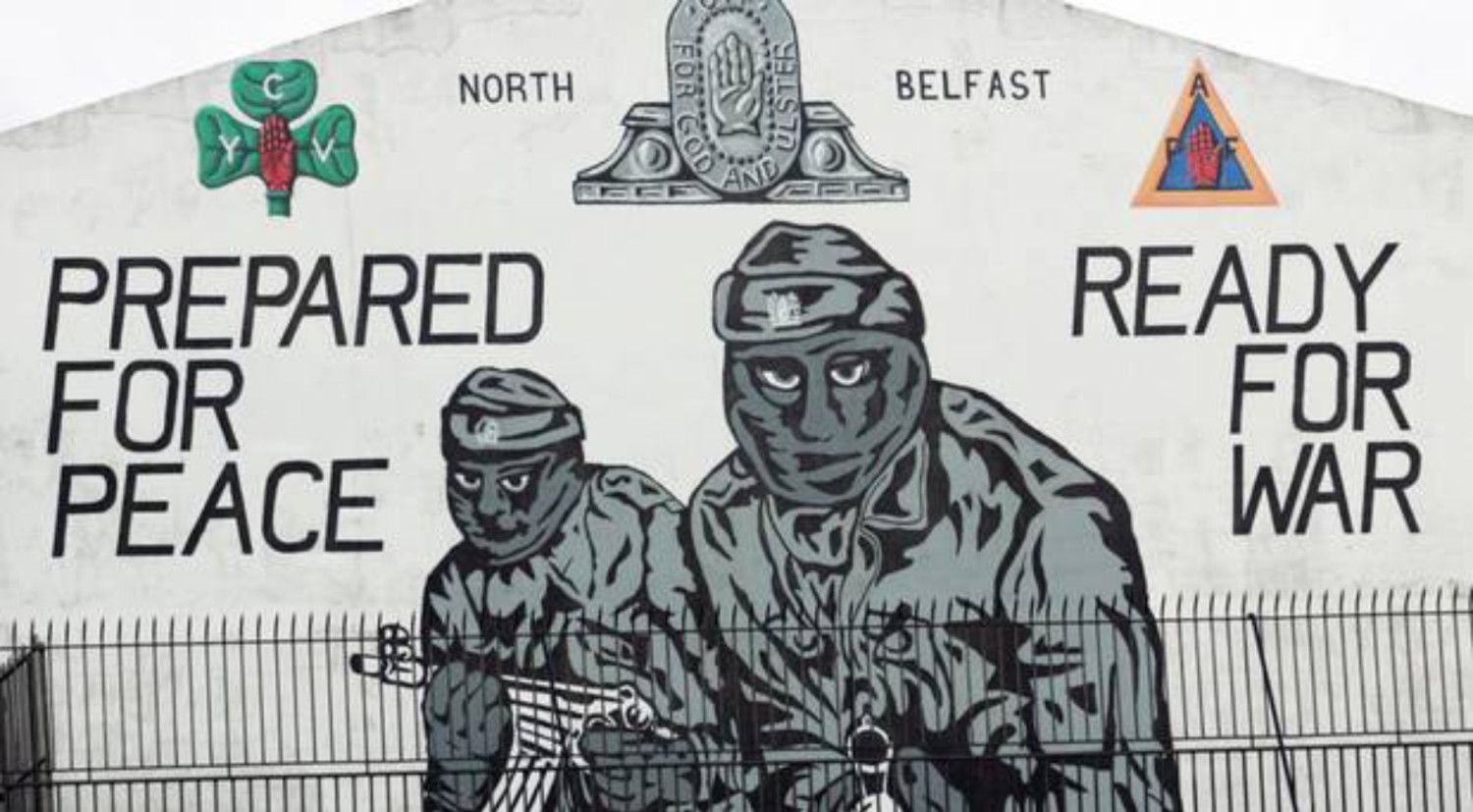Northern Ireland lives in the shadow of the gunman; there is not a man, woman or child who doesn’t know someone killed or wounded during the Troubles. That the last generation has grown up in something approaching normality is a testament to the patience and forbearance of their once-belligerent fathers. Yet the underlying issue remains unresolved; the ultimate zero-sum problem, some would say it never can be. With the contradictions of Northern Ireland’s precarious status quo, simultaneously British and Irish, fast becoming apparent, the spectre of violence materialises daily.
When I first penned this piece, over a year ago, a return to the bad old days of violence must have seemed far-fetched; beyond pious, Brexit-bashing concern no-one particularly cared about Ulster. Of course, things are rather different now.
Like latter-day Robin Hoods, the IRA’s latest iteration has tentatively resumed the armed struggle, taking time off the black-market fertiliser trade to heroically shoot policemen in the back before their children. On the other side of the fence the UVF and UDA, those stalwart guardians of the loyalist community, flex their muscles scrapping over drug turf.
The situation, dire enough to warrant the terror threat’s elevation to severe, can only be worsened by a visit from the most divisive and blinkered US President in recent memory. Where Clinton played the statesman, drawing on his Irish heritage to inform a nuanced appreciation of Northern Ireland’s paranoid politics, steadying its protagonists as they walked the tightrope to peace, Biden acts the demagogue. Ostensibly here to commemorate the healing of sectarian wounds, his undisguised partiality to one of the two tribes threatens the very peace he claims to celebrate.
In Belfast a shark in a fishpond, his profile gives him the ability to inflict great damage with a few careless words, his unique talent for which rivals the past master, George ‘coexist with fish’ Bush himself. Bushisms, though, never killed but with laughter; Biden’s trainwreck gaffs may prove actually lethal. Warnings that the IRA intends to target bobbies on Easter Monday simply highlights confidence in his republican sympathies. Unless he shows a restraint previously alien, and perhaps beyond his rumoured senility, his callous drive-by, rhetorically aping the triggermen of old, will riddle the firmament of Northern Irish politics, possibly fatally.
These, however, are merely symptoms of a deeper malaise, entirely foreseeable and yet terrifyingly unavoidable. Three clear milestones lay on the road to ruin, as it were: a Catholic majority at the last census, a Sinn Fein triumph in Stormont, and finally a Sinn Fein government in the Republic. Two have now come to pass; the last seems inevitable. Perfectly calibrated to embolden nationalists, heightening loyalist insecurities, the steady growth of the Catholic electorate cannot be taken lightly.
With an explicitly nationalist party in power throughout Ireland, demand for a border poll on unification would be overwhelming, placing Ulster on a knife’s edge. Though, given the still-sizable unionist majority, perfectly able to veto any such request, its very proposal would present the British government with a classic Morton’s fork. Outright denial would leave republicans no recourse but to ‘physical force’; allowing it would bring simmering tensions to a boil. Either way, violence is inevitable and with both communities well-armed and fearful, would prove unstoppable. Just as in the last war, once shed blood will flow in torrents.
How, then, to arrest this drift to disaster? At this late hour only prompt and decisive action can forestall a return to decades more strife. The Windsor Protocol represents a victory for pragmatism. But it is not enough. The root of all unrest is the constitutional uncertainty which lingers over Northern Ireland. Only when this lurking power vacuum is filled will agitation cease.
The growing separation between religion and politics provides a promising start. From it, the British government should make a case for a new British-Irish identity based not on what church you attend, or which community you belong to, but on which passports you hold, and where you can go. The ancient Protestant ascendency is gone; Catholics enjoy equal rights. Integrating Northern Ireland politically into the rest of the United Kingdom, ending endless Stormont squabbling, would just be the first step towards overcoming the tired dispute over whether this or that clod of earth belongs to Westminster or Dublin. Hundreds of thousands of Irishmen live in the UK, yet through the miracle of dual-nationality or right of residence their Irishness remains intact; they enjoy an Anglo-Irish set of privileges. Could the denizens of South Armagh not settle for something similar? Free access to the Republic, just an invisible border away, the right to elect their own local councillors and even Westminster MPs, within a Britain no longer oppressive, and marginally less foreign. It hardly sounds terrible.
It is easy to decry the stubbornness and suspicion which dominates Northern Irish politics; cheap to accept that nothing can be done about it. We can silence the dreary drumbeat of sectarianism. The earth has moved before. Thirty years ago how many could have foreseen an end to random murder, sudden death on street corners, homicides at home? Yet it happened. We have a duty to keep it that way.






0 Comments